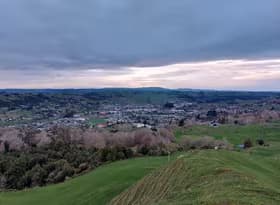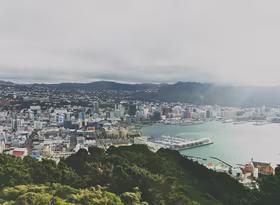Hollowing out of New Zealand not inevitable
The clustering of people and activities within large urban areas is a global trend that has substantial implications for New Zealand’s economic development. This clustering, which economists term agglomeration, is driven by the higher productivity businesses can attain from the easier flow of knowledge and ideas, reduced transport costs from being close to suppliers and customers, and having access to deeper and more diverse pools of labour.
Globalisation and developments in technology have increased the value of clustering. Modern developments particularly favour the clustering of creative industries such as software, multimedia, video games, industrial design, fashion, publishing, and research and development. These types of industries can achieve significant benefits from being in close proximity to one another through the sharing and disseminating of ideas. Workers in these industries tend to be highly mobile, which means that firms with highly-skilled workers will flock to urban areas that already have high concentrations of creative firms.
The small and dispersed population base of New Zealand and its geographical isolation has been a disadvantage for New Zealand-based operations in recent decades. None of New Zealand’s main cities are large enough to challenge the pull of Australian and Asia-Pacific heavy-weights such as Sydney, Melbourne, Hong Kong or Singapore. The consequence is that many promising industries with global ambitions are attracted to these larger centres.
Some fear that global agglomeration will result in a "hollowing out" of New Zealand cities as a result of high-value economic activities shifting further afield. In my view this dire scenario is unlikely to eventuate largely due to New Zealand’s strength in primary and primary processing industries. Such industries by nature are more geographically dispersed than many others due to the need to locate processing close to farms. Global population growth and food shortages will enhance New Zealand’s comparative advantage in food production in the longer-term. This will mean that those regions that have higher concentrations of primary food production with significant value-added processing will continue to experience good economic performance and population growth.
New Zealand has built up a robust tourism base with strong clusters around areas like Rotorua and Queenstown. Tourism operators benefit from the proximity of other attractions and players can quickly learn from other operators. Education is another area that New Zealand has a solid reputation and can build on existing networks and clusters. Niche creative industries and high-tech manufacturers are also able to thrive in New Zealand as firms such as Weta, Icebreaker, Rakon, Fisher and Pykel Healthcare, Endace, Orion Health and others show.
The real issue is that once New Zealand creative and high-tech companies achieve a certain size they run out of options to get bigger because of lack of market opportunities, skilled workers and capital. In the short-term, businesses and workers that move out of a centre due to the pull of larger centres overseas can cause losses in jobs, income and wealth. However, in the medium to long-term opportunities can open up for new activities and industries in the centre. Ensuring that it is relatively cost-effective and easy for new business to locate in an area will help retain existing activities and attract new start-up businesses to the area. It is not likely to be fruitful for local authorities to "pick winners" because the fundamental success of industries depends primarily on the specific attributes of individual firms and their founders. However, it is important that successful firms that do emerge are encouraged and facilitated through such things as flexible urban planning and competitive rating systems.
Local authorities can do much to enhance networks, cohesion, and trust, which in turn can mean that regions or district scope better with the cards they are dealt. A sense of social cohesion and connectedness within the community can attract people to a region and encourage them to remain. Local authorities may also have a role in promoting economic growth by working with business associations to facilitate business networks in a region. Such networks can provide forums for sharing ideas, finding partners to collaborate with and provide a vehicle for co-operation on mutually beneficial projects.
One trend that is likely to counter moves to larger centres to a certain degree is the preference of people to avoid the negative aspects of large urban environments such as congestion, pollution, noise and crime. People are increasingly valuing having a sense of "place" and urban areas that have a unique history and character that people can identify with. This suggests that local policies and marketing that emphasise the benefits of easy accessibility, attractive public spaces, green values, and local heritage would help counter the pull to larger centres. The challenge for local authorities is to cater to these trends in cost-effective ways.




